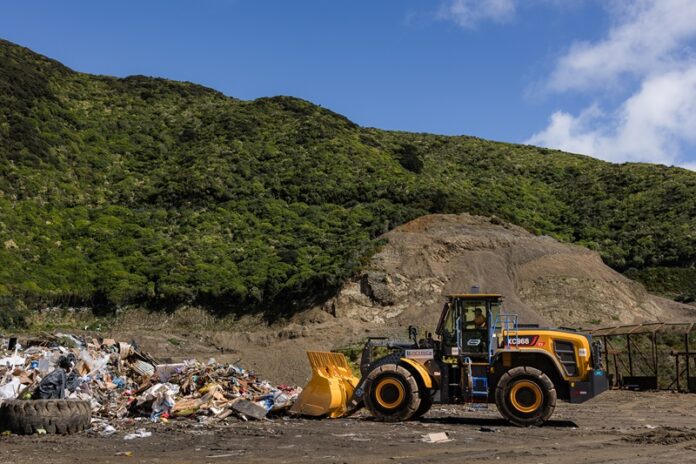Wellington City Councillors have unanimously voted to approve a plan to reduce waste and move towards a circular economy over the next six years.
Council agreed to adopt the Wellington Region Waste Management and Minimisation Plan 2023-2029 (WMMP). The Council says the plan creates a pathway for everyone in the region to work together to care for local resources – “for less waste and a greater place through a circular economy model which allows resources to be used repeatedly rather than sent to landfill”.
All eight councils in the Wellington region – Masterton, Carterton, South Wairarapa, Upper Hutt, Hutt City, Wellington, Porirua, and Kāpiti Coast – developed the plan.
Under the Waste Minimisation Act 2008, all councils must review and update the regional plan every six years.
The plan was recommended for adoption by the Wellington Region Waste Management and Minimisation Joint Committee (Joint Committee) with representatives from all councils in early December.
It needs to be adopted by each individual council before it is finalised.
Joint Committee Chair and Wellington City Councillor, Iona Pannett says the plan sets the way the region can work together to reduce waste.
“The Committee, through consultation, made a commitment to move towards a circular economy model through reducing and reusing resources. Landfilling is seen as a last resort for resources which can’t be reused. Councils have the opportunity to lead the way on this,” she said.
“While some progress has been made over the last decade, there is still much work to do.
“We have a shared responsibility to address the urgent problem of waste generation which not only affects the current health of our environment, but also has far-reaching consequences for climate change, biodiversity, and public health.”
Councillor Pannett says a conscious effort has been made to include a Te Ao Māori world view and discussions are beginning with mana whenua on how they can play a greater role in this important area going forward.
Within the regional plan, each council has created a Local Action Plan for better resource use.
Wellington City’s plan includes 29 actions to help reduce waste, including putting an organic kerbside collection in place, and making it easier for Wellingtonians to recycle and re-sell goods, instead of sending them to landfill.
Consultation on the WMMP took place in August. There were close to 200 submissions on the plan from across the region, including written and oral submissions from individuals and groups in Wellington city.
Regional targets in the WMMP include reducing the total amount of material going to landfill by 10 percent by 2027 and by 30 percent by 2030.
Some region-wide goals to achieve these targets include:
- Ensuring the availability of construction and demolition waste processing and recovery by 2026
- Providing organic processing systems by 2029
- Adding five new resource recovery locations to the existing network by 2030.
The targets in the WMMP align with the Government’s Te rautaki para | Waste Strategy. They have been spread over the six-year life of the WMMP to enable the councils to manage costs over a longer period while the necessary changes to the region are embedded to reduce waste.



